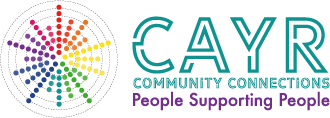 I was really struggling this month to come up with a “sexy” topic to write. I did some research on eroticising safety and consent, and was daunted by the complexity of this issue for women living with HIV. Eroticising consent has all to do with asking first, and how to make those sexy first steps. But, when it comes to consent for women living with HIV it also involves disclosing their HIV status. Nothing is sexy about that. For any women living in a country where HIV non-disclosure is still criminalized, as it is here in Canada, an even greater shadow is cast over entering into a sexual relationship with a new partner.
I was really struggling this month to come up with a “sexy” topic to write. I did some research on eroticising safety and consent, and was daunted by the complexity of this issue for women living with HIV. Eroticising consent has all to do with asking first, and how to make those sexy first steps. But, when it comes to consent for women living with HIV it also involves disclosing their HIV status. Nothing is sexy about that. For any women living in a country where HIV non-disclosure is still criminalized, as it is here in Canada, an even greater shadow is cast over entering into a sexual relationship with a new partner.
Before we can start talking sexy, we have to ensure our safety.
We all have heard about or experienced the dance before disclosure that determines whether or not it is safe, to reduce the risk of violence first and foremost, but also to avoid emotional and psychological scarring and the countless stories of rejection. Considering the weight of what you are going to share with another human being, and their potential reaction range, I believe we, as women living with HIV, have to ensure we are able to proceed to eroticise consent and safety, by first determining our potential lover’s take on people living with HIV. How do you ensure any potential partner understands the basics of HIV, and is willing to educate or re-educate themselves to the current realities of living with HIV? So, I thought further on what would make consent and safety sexy for women living with HIV and I realized that pre-determining whether a potential partner is actually an ‘ally’ may be a place to start. In my opinion, this preliminary step may be the most important one in order to avoid all potentially negative outcomes that can result from disclosing one’s HIV status. Before we can start talking sexy, we have to ensure our safety.
So what is an ally, what does it mean, and why is it important to predetermine prior to disclosure, consent and safety? There are many different definitions and descriptions of what it means to be an ally. The concept and definitions vary in different communities. At a basic level to be an ally is to unite oneself with another to promote a common interest and understanding. Commonly, people who are allies also have a common interest with those they align themselves with. In an alliance, both parties stand to benefit from the bond or connection they share. In the field of social justice studies, the idea of being an ally to another person or group of people has become a key concept in examining issues of oppression and privilege.
It takes time to be a true ally. It takes commitment, and personal investment to listen and to truly become sensitive to the realities she/he/they are living with.
Being an ally is more than being sympathetic towards those who experience discrimination. It is more than simply believing in equality, it is understanding and being aware of injustice as it is experienced. As Dr. Martin Luther King, Jr. said, “Injustice anywhere is a threat to justice everywhere.”
When you are a true ally and you make a point to develop a friendship with a group of persons that you are not intrinsically a part of, you have a responsibility to educate and inform yourself about the inherent discrimination or injustice this particular group faces. For women living with HIV, there are many questions and layers of discrimination to understand and ask questions about.
It takes time to be a true ally. It takes commitment, and personal investment to listen and to truly become sensitive to the realities she/he/they are living with. To be a true ally involves going out of your way to educate yourself about things which you did not previously understand. In the process of learning, hopefully you find empathy for the circumstances, culture, gender, and realities that any one person may be living with. You replace misunderstanding with understanding. Allies respect, and don’t mock, or judge. Allies do not cause harm emotionally, psychologically or physically.
So, how does this all relate to HIV disclosure and safety, prior to eroticising consent? How do you figure out if a potential partner is a potential ally or not? Women I have spoken with all have different methods of determining a person’s ‘position’ on HIV, but no one complete method is a panacea for disclosure. It’s an emotionally charged moment that needs all the strength and courage one can muster. For me, the best way of determining whether a partner is an ally prior to this moment is to ask questions to the best of my ability, which is all any of us can do. Ask questions around diversity, prejudice and discrimination; sleuth your way around the topic. It has been my experience that if someone is discriminatory, racist, homophobic, or displays any signs of judgement and discrimination in their language and opinions, the chances are fairly good that these views will touch on HIV as well. Not always, but my hunch is more often correct than not.
Building relationships and community is a two way street with responsibilities on both sides.
Before women living with HIV can eroticise consent, and safety, they often must ascertain whether the potential partner has the open mindedness and ability to listen and learn, and ask questions themselves. Have they been tested? Are they aware of sexually transmissible infections? Do they understand their own sexuality? The discussion goes two ways, and both sides have to be honest to talk about living with HIV and the realities of a serodiscordant relationship. Building relationships and community is a two way street with responsibilities on both sides. It takes time, commitment, building trust, and being willing to move past the discomfort in order to move forward towards eroticising consent. When the legal requirement to disclose is removed from the equation, the playing field for all will become much more fair, easing the path towards eroticising consent and safety for women living with HIV.
The resources out there now are vast – some are on this website. Learn about the role of allies and how best to include them in your life. Taking the preliminary step of determining whether a potential lover could be an ally will make the eroticising of safety and consent possible and undoubtedly, way way more pleasurable.
By Wynne ST
This blog was originally posted on Life and Love with HIV on January 24, 2019





